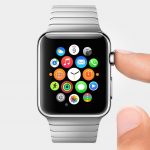 For much of their short lives smart watches have been used to track activity levels, and have therefore had a health remit in the broad sense of the term. They are however branching out into a much more expansive definition of the term.
For much of their short lives smart watches have been used to track activity levels, and have therefore had a health remit in the broad sense of the term. They are however branching out into a much more expansive definition of the term.
I’ve written previously about Verily’s Study Watch, which is a device aimed at health researchers to help them capture lifestyle and behavior data from users to better inform medical research. Far and away the most expansive application of the watch is Verily’s Baseline Project, which is tracking around 10,000 users over several years, with the data aggregated alongside more traditional medical data from our electronic patient records and various tests.
“No one has done this kind of deep dive on so many individuals. This depth has never been attempted,” the team say. “It’s to enable generations to come to mine it, to ask questions, without presupposing what the questions are.”
An Apple a day
As one of the pioneers of the smart watch, you might expect Apple to be in on this craze too, but for much of the Apple Watch’s existence, it has not performed anything remotely medical. That might be changing however, with a new project undertaken via the University of California, San Francisco and health-tech startup Cardiogram.
The project is using the Apple Watch to detect atrial fibrillation, which is a heart condition that has significant consequences but is very difficult to detect. I say it used the watch, but this was a loose association, as the real value was derived by an artificial intelligence algorithm developed by the team to make sense of the information recorded by the watch.
The team captured data from a few hundred volunteers who were all known to have atrial fibrillation. Each user had also previously used AliveCor, an electrocardiogram (EKG) that works with the iPhone. The users generated data from both the watch and the EKG simultaneously, with the algorithm then finding correlations in the data generated by both the FDA approved AliveCor, and the very much un-FDA approved Apple Watch.
When the algorithm was tested, it proved to be around 97% accurate in detecting fibrillation, although it must be said that at this stage the sample size was very small, so it would be premature to read too much into the findings. Nevertheless, it’s a promising finding and the team are hopeful of expanding their sample through the course of the year to more robustly test the algorithm.
There were also some hindrances in how the data itself could be collected. Apple themselves admit that movement can cause inaccuracies in the readings, so participants were required to remain stationary each time a reading was taken.
It’s a notoriously difficult sector to break into, not least because of the rigor required to obtain regulatory approval, but studies like this highlight the clear possibilities of such devices to add considerably to not only health research but also more attuned and personalized care too.
It’s an area to watch with particular interest.